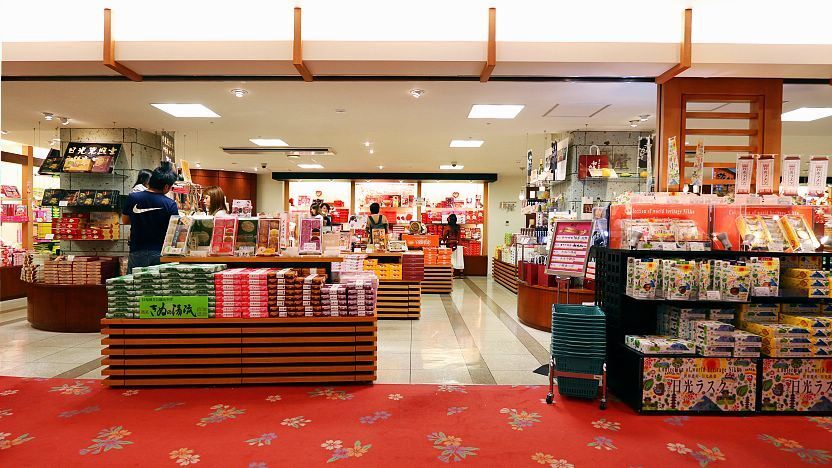Giving Gifts

Gift giving is a common part of Japanese culture. Different types of gifts are given on different occasions as outlined below. Much attention is given to the wrapping of presents. If not nicely packed, the present should at least be handed over in a bag, preferably a bag by the shop the present was purchased at. Gifts in sets of four are usually avoided because it is considered an unlucky number (the Japanese word for four is pronounced the same as the word for "death"). When handing over a present, both the gift giver and recipient use both hands.
Omiyage and temiyage
Omiyage are souvenirs brought home from a trip while temiyage are thank-you gifts you bring when you visit someone. Japanese tourists tend to buy lots of souvenirs for their friends, relatives and co-workers. Consequently, tourist spots and airports feature many souvenir shops specializing in local foods and products.
When foreign visitors meet friends or a host family in Japan, it is not imperative for them to bring gifts, but it is a nice gesture. Recommended gift items include food, drinks or other products from your home country. In general, they should be neither too cheap nor too expensive - typically between 1000 and 5000 yen. Note that there are restrictions on bringing certain types of food and plant products into Japan.
Ochugen and oseibo
Twice a year, in summer and in December, it has been common for co-workers, friends and relatives to exchange gifts, although the tradition is gradually fading. The gifts are called ochugen and oseibo respectively. On average, they are worth about 5000 yen and may be food, alcohol, household items or something similar. The gift giving seasons coincide with company employees receiving a special bonus in addition to their monthly salaries.
Birthday and Christmas
Gift giving on birthdays and Christmas is not originally a Japanese tradition; however, the exchange of gifts on these occasions has been gaining popularity in recent decades.

Questions? Ask in our forum.